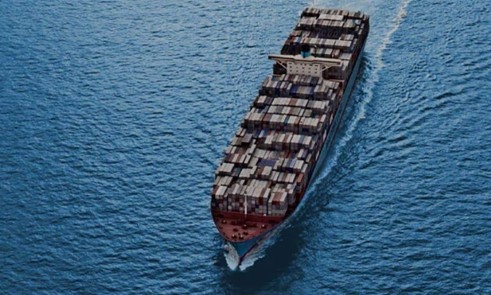
And the impact? Rates quadrupling on the Asia- Europe
and Asia-Mediterranean trade. The latter just topped the US$5,000 mark to end
at USD 5,213 while the Asia- Europe rates rounded off around the US$4,500 mark.
Interestingly both
the trade lane quotes have beaten the Asia- America East Coast rates which
ended at US$4,170, nearly doubling since the Panama Canal passage restrictions. The combined effect of these has pulled the Drewry World Composite
Index up by 85% in a fortnight to end at US$3,072 which was last seen around
the end of October 2021. This indicates staving off the entire fall of 2023.
The market expects
the supply chain disruptions to continue soon and Drewry
aligns their commentary on similar lines with the rates expected to inch
higher. With the Chinese New Year in February seen as a key point in time to
monitor and recalibrate and see where the rate actions would head, some of the
other features that need to be looked into, include how the introduction of
EU-ETS and associated surcharges on shipping would come into play.
The re-routing has
affected the port handling scenarios too with the key South African Ports of
Durban and Cape Town running into double-digit days, in terms of
waiting time. On the carrier front, the likes of CMA CGM and MSC have joined
the other biggies in suspending transit via the Red Sea.
While the head-haul
rates continue to dictate the market, the back-haul rates have appreciated by a
fair margin too. The Europe-Asia rates have appreciated by 40% over a
quarter while the Asia- US West Coast, the head-haul trade route with the least
possible impact has still appreciated by 33% in a fortnight. Should the
situation continue, it remains to be seen if the American Rail system would be
tapped into, to effectively reduce the end-to-end supply chain cycle time.
A key point to
ponder is the effect the rate action can have on the contract market as it
readjusts next quarter. And while the rates are
forecasted to have double-digit percentage gains in the coming weeks, the one
thing that will see all heads talk about is global macroeconomics and
inflationary shocks in the near term. The World Bank has officially put in a
word of caution on the ongoing geopolitical volatility by also adding the
possibility of energy supplies being disrupted.
A well-defined lookahead in terms of critical orders,
demands and needs should be sketched to tackle this situation and this should involve all possible
stakeholders in the fray.